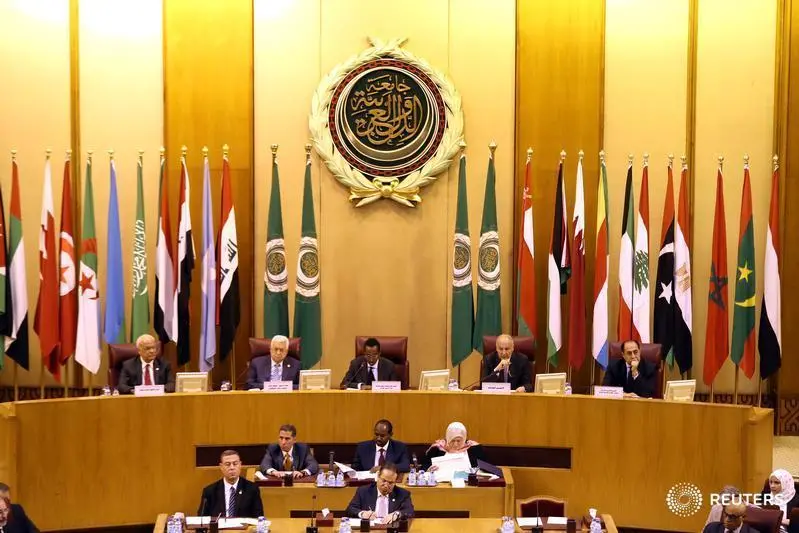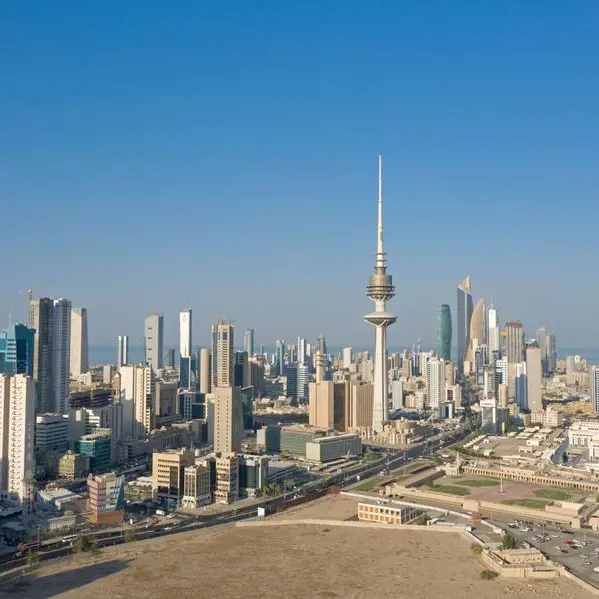PHOTO
According to estimates by the International Monetary Fund (IMF), the Middle East will begin to rebound this year, transitioning from a brink brought on by the twin crises of a pandemic and sustained low oil prices.
A rebound of just under 3 percent pales in comparison to the global average of over 5 percent, but it does inject much-needed optimism, slightly addled by wonky vaccine rollouts in the region’s poorer states. For Arab world governments, however, successfully dealing with COVID-19 and facilitating a smooth return to the post-pandemic “normal” is merely the beginning.
The pandemic and the downturns it induced revealed serious resiliency gaps in the region’s societies and economies that may have worsened existing crises, in addition to further erosion of the public’s already dismal levels of trust and confidence in their governments. It is unsurprising, therefore, to witness mobilization in developing ambitious long-term visions and plans for reforms, transformations and diversification across the region. However, Arab states run the risk of repeating the mistakes of using the same decision-making frameworks and flawed foundations to craft policies intended to help the majority, yet excluding most of them in their deliberations.
For most of the Middle East to succeed in attaining the ideals of well-governed states with empowered citizens fully participating in knowledge-based economies, the key is not in repeating the old to invent something new. For instance, ham-fisted top-down reforms and abrupt cutbacks on subsidies or other social protections may do well for the fiscal bottom-line in the short term. But without adequate planning, communication and phased implementation, they risk creating new socioeconomic crises or sparking protests among the desperate, poor and marginalized. The same applies to bottom-up approaches, which try to empower the forgotten and excluded but fail to acknowledge or address the systemic issues.
COVID-19 has not only incentivized a rethink on the most effective ways to restructure economies or reorient societies, it has also clarified that the old ways of doing things, from a policy perspective, are no longer viable. If Arab states are to succeed at all, the answer lies in the four pillars of women, youth, technology and education. Granted, there is already a litany of literature, research and calls by global institutions such as the World Bank and IMF, strongly urging Middle East governments to tap into their human capital, invest in technology and reform education. However, where there is data and compelling rationale, there is a lack of political will to craft policies accordingly, considering how pursuing certain changes brushes up against deeply ingrained cultural norms or perceptions, which disproportionately affect women and girls.
A society, and by extension its economy, can only go so far without the full participation of half of its population.
Across the Middle East, only 24 percent of women are unemployed outside the home, compared to 60 percent in Organization for Economic Co-operation and Development (OECD) countries. Gender-based discrimination in laws and social norms cost the region about $575 billion a year, and failing to harness the talents of working-age women means lost economic potential and less economic growth. For instance, it is estimated Lebanon and Egypt's GDPs could be almost 30 percent higher with the elimination of economic gender gaps by adequately empowering women toward greater economic participation. Any post-pandemic recovery goals or long-term visions for diversified, productive economies should not imperil the recent modest gains in female participation, an unintended consequence of home working during the pandemic. In fact, they should capitalize on them by incentivizing firms to hire more women.
It is no secret that the Middle East is blessed with rich human capital, much of which is trapped in informal sectors now weighing down economic growth and complicating post-pandemic recovery. If the Middle East is to come close to achieving grand ambitions of knowledge-based economies, powered by inclusive, diverse, highly literate workforces, it must also tap into the youth demographic. Two-thirds of the Middle East’s population is under the age of 35, and that same age group is one of the fast-growing demographics in the world. By 2030, there will be more than half a billion youths and young adults in the Arab region alone, which will require massive job creation efforts. The World Bank estimates Middle East economies will need to create as many as 300 million jobs by 2030.
Given already bloated public sectors and reforms underway to reduce them, traditional preferences for government employment are no longer the answer. The only solution is encouraging the growth of small-to-medium enterprises (SMEs), requiring massive and sustained state support for the private sector, instead of treating it as a tool for patronage or a vehicle for corrupt practices. There are so many ways to support small business, from formalizing areas of work and entrepreneurship in the informal sector to reducing bank lending rates to SMEs. There is simply no greater alternatives or source for new employment opportunities beyond aggressively expanding the private sector and encouraging the hiring of young people.
To unlock all this potential, unprecedented reforms to education and an even greater embrace of new technologies are needed more than ever. Decades of efforts at transforming education across the Arab world may have improved enrollment rates and gender parity, but they have failed to generate wealth, prosperity, productivity and income stability. To change that, Arab states will have to grapple with the systemic and deeply ingrained historical, cultural, political and social tensions wreaking havoc on national curriculums, as well as the quality of education and its delivery. It is also not a matter of changing how children learn but also transforming labor markets so that graduates can find employment with adequate skillsets to reduce the enormous gaps now contributing to rising unemployment levels.
COVID-19 has not only unleashed crises, it has also acted as an accelerator for technological innovations, some of which are changing perceptions about healthcare, mobility, education and even how people work. Additionally, a global climate change agenda has encouraged governments to craft strategic initiatives to spark energy transitions in favor of renewables and pursue economic diversification agendas to develop knowledge economies.
This is where investments in technology make a more meaningful impact, especially if states support the development of home-grown entrepreneurial talents, innovations or solutions.
Technology is at the core of the knowledge economies some Middle East economies are planning, but also aids the other three pillars. For instance, technological innovations in education improve delivery, efficiency and knowledge retention while also creating platforms for women and youths to work and/or study remotely.
Ultimately, inclusive economic growth and development needs trust between citizens and their government, as well as the private sector.
It is fundamental, reciprocal and pervasive because when it is present, achieving proposed reforms and objectives will be possible. When it is absent, however, no grand plans or ambitions will achieve any meaningful gains. Fortunately, there is no greater commitment to rebuilding trust than governments taking bold, unprecedented steps that deliver tangible benefits and a sustained positive impact on the lives and livelihoods of the general public.
- Hafed Al-Ghwell is a senior fellow with the Foreign Policy Institute at the John Hopkins University School of AdvancedInternational Studies.
Copyright: Arab News © 2021 All rights reserved. Provided by SyndiGate Media Inc. (Syndigate.info).





















